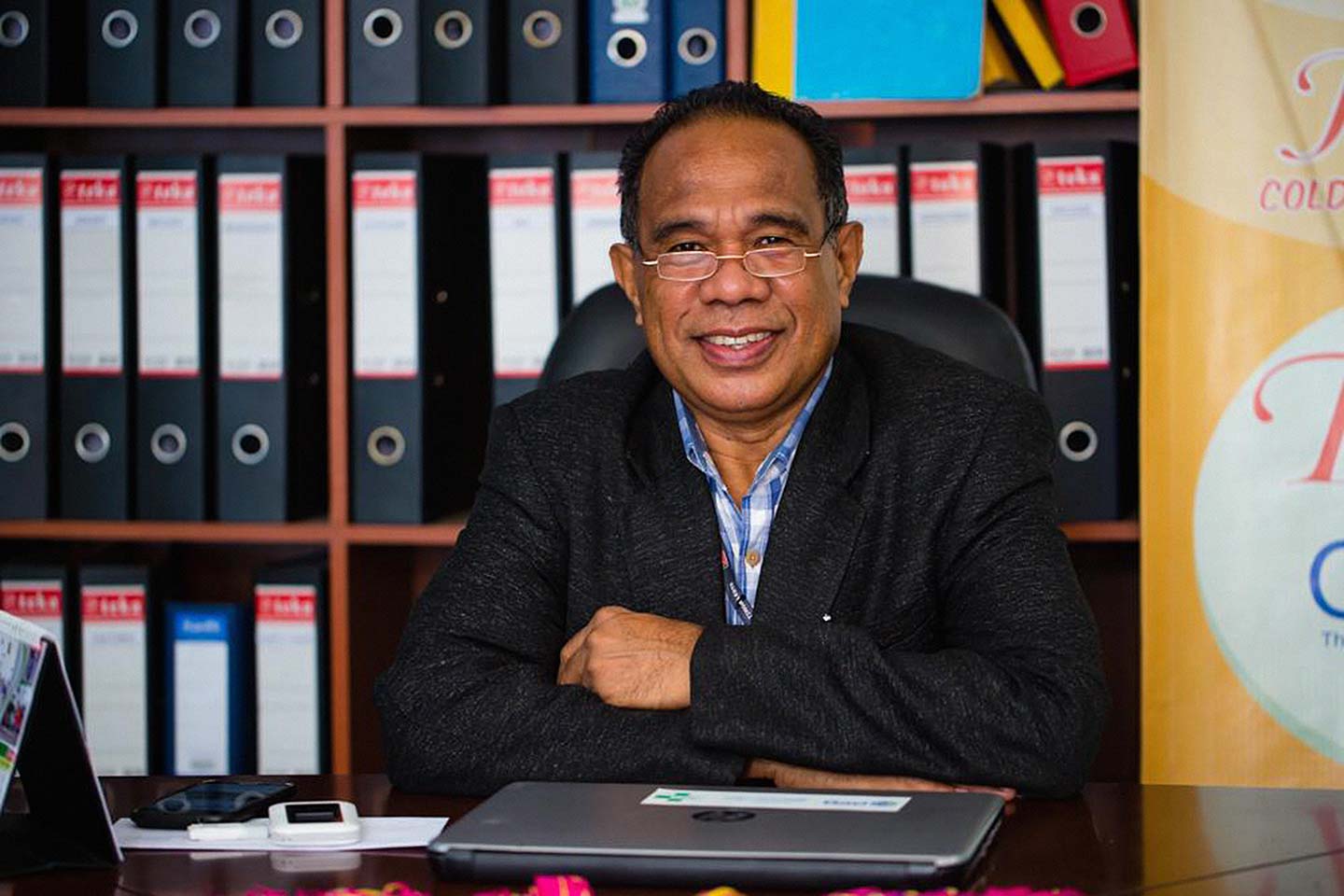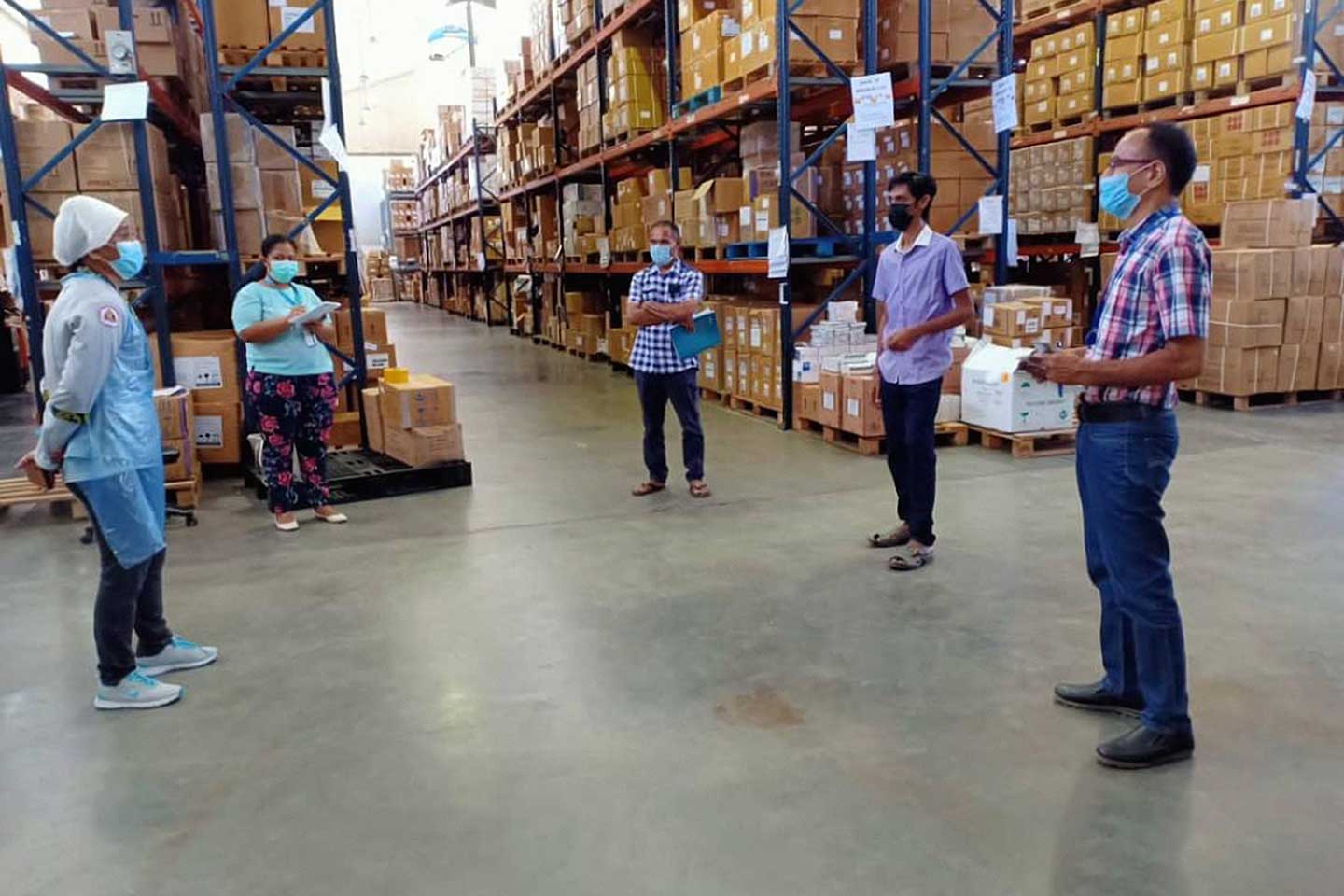We are working hard to ensure that immunization services continue to be available for every child
There is no fundamental reason to stop immunization in any situation.
- 26 May 2020
- 4 min read

"The COVID-19 crisis has resulted in a number of restrictions as part of the State of Emergency introduced in Timor-Leste, including the closure of schools and limitations on movements. But as Manuel Mausiry, EPI Manager at Timor-Leste’s Ministry of Health says, a child’s right to health should not be limited. This is why he, his team, UNICEF and partners are working to ensure that the country’s routine immunization schedule goes on without disruption."
- Manuel Mausiry, Expanded Programme of Immunization (EPI) Programme Manager, Ministry of Health
Please briefly describe your role and responsibilities.
As the Expanded Programme of Immunization, or EPI, Programme Manager at the Ministry of Health in Timor-Leste, I am responsible for looking after the implementation of routine immunization across the country. I oversee and manage vaccine distribution, develop annual vaccine forecasting, ensure that refrigerators and cold-chain equipment are available and functioning at health facilities, that there are adequate vaccine stocks at all levels across the country, conduct outreach activities and respond to outbreaks of vaccine-preventable diseases, such as measles.
How has the routine vaccination programme changed due to the current coronavirus crisis?
When the first case of COVID-19 was detected in Timor-Leste, the EPI Programme, together with UNICEF and the World Health Organization (WHO), developed a guide for healthcare workers on maintaining routine immunization services while operating in a State of Emergency. Although we have suspended outreach activities, we are committed to keeping fixed-site immunization services functional. We have also prepared by having adequate stocks of all vaccines in the country. To date, there has been no negative impact on the immunization programme due to the COVID-19 situation, and we are working hard to ensure that immunization services continue to be available for every child.
Why is it vital that Timor-Leste’s children have their right to healthcare, particularly immunization, upheld during this time?
There is no fundamental reason to stop immunization in any situation. We will ensure that its implementation remains strong in Timor-Leste. The children of Timor-Leste are the future of the nation. If we do not take care of them there will be no guarantee of sustainable development moving forward. We must continue to support each other and work to protect our children from preventable diseases, such as measles, diphtheria and polio - and immunization is a simple and effective way to do this. Not only does it help protect individuals, it also protects the broader community by minimizing the spread of many deadly diseases. The EPI Programme is one of the [government’s] best investments, and immunization is a very cost-effective intervention.
Can you share some of the ways in which Timor-Leste is ensuring children continue to receive routine vaccinations?
As part of the response we have reprogrammed certain funding, including from Gavi, the Vaccine Alliance, to the Ministry of Health, while UNICEF and the WHO have also reprogrammed their budgets to support the maintenance of immunization during the pandemic. We have developed guidelines for the screening and triage of patients coming to health facilities and we are trying to procure masks and gloves for health workers. We are advising health workers to use masks and encourage them to perform hand hygiene frequently and use hand sanitizers when vaccinating children. As much as possible, we are trying to control overcrowding at health facilities and are recommending that vaccination sessions be conducted in well-ventilated areas and that these areas are disinfected often.
How has your partnership with UNICEF impacted the immunization situation in Timor-Leste?
There are some key ways in which this partnership has worked to improve this situation. For example, the Ministry of Health, UNICEF and WHO, with support from Gavi, are working closely to reach 95 percent immunization coverage. We have also worked together to ensure cold chain maintenance and the proper storage and use of vaccines. We work closely to develop various communication materials that support communities by informing them about immunization and other health programmes. Our common goal is to prevent vaccine preventable diseases, prevent malnutrition and improve child health, which are essential for the future of Timor-Leste.







